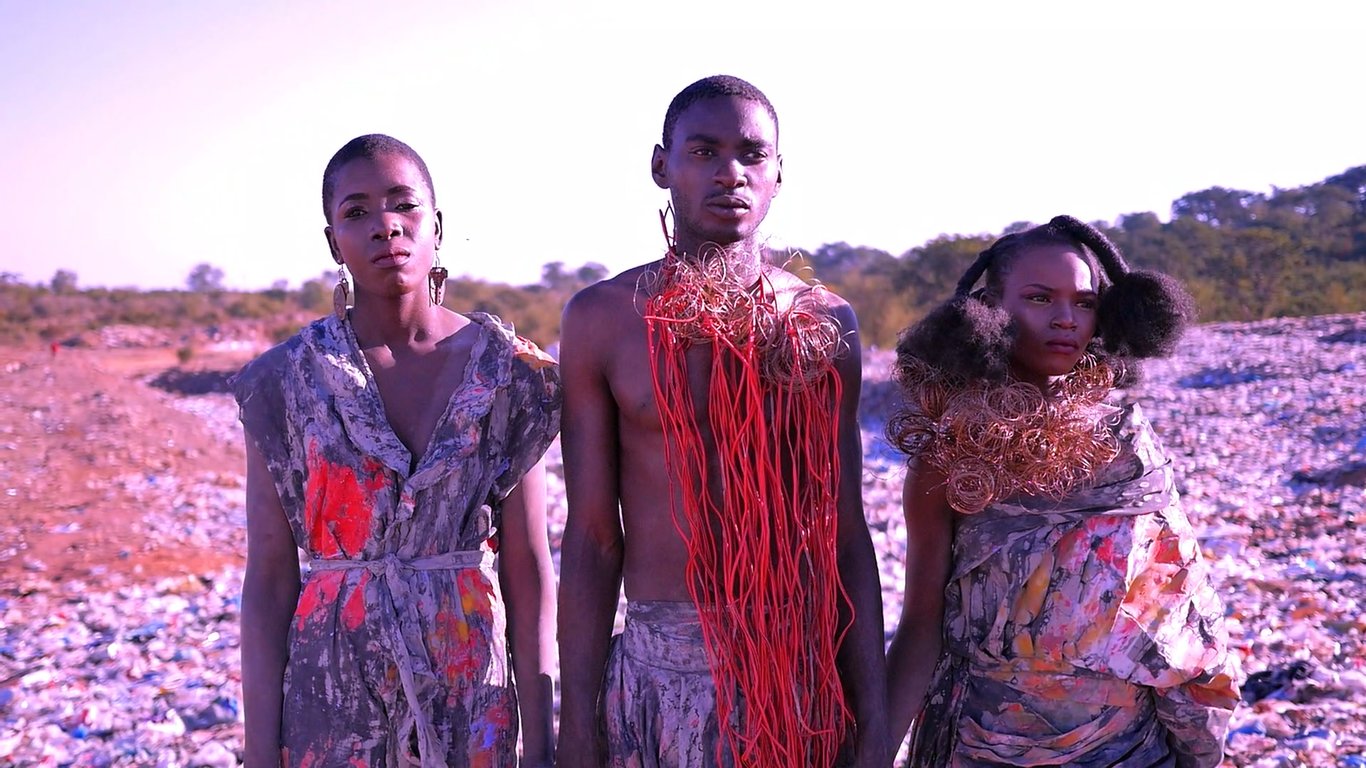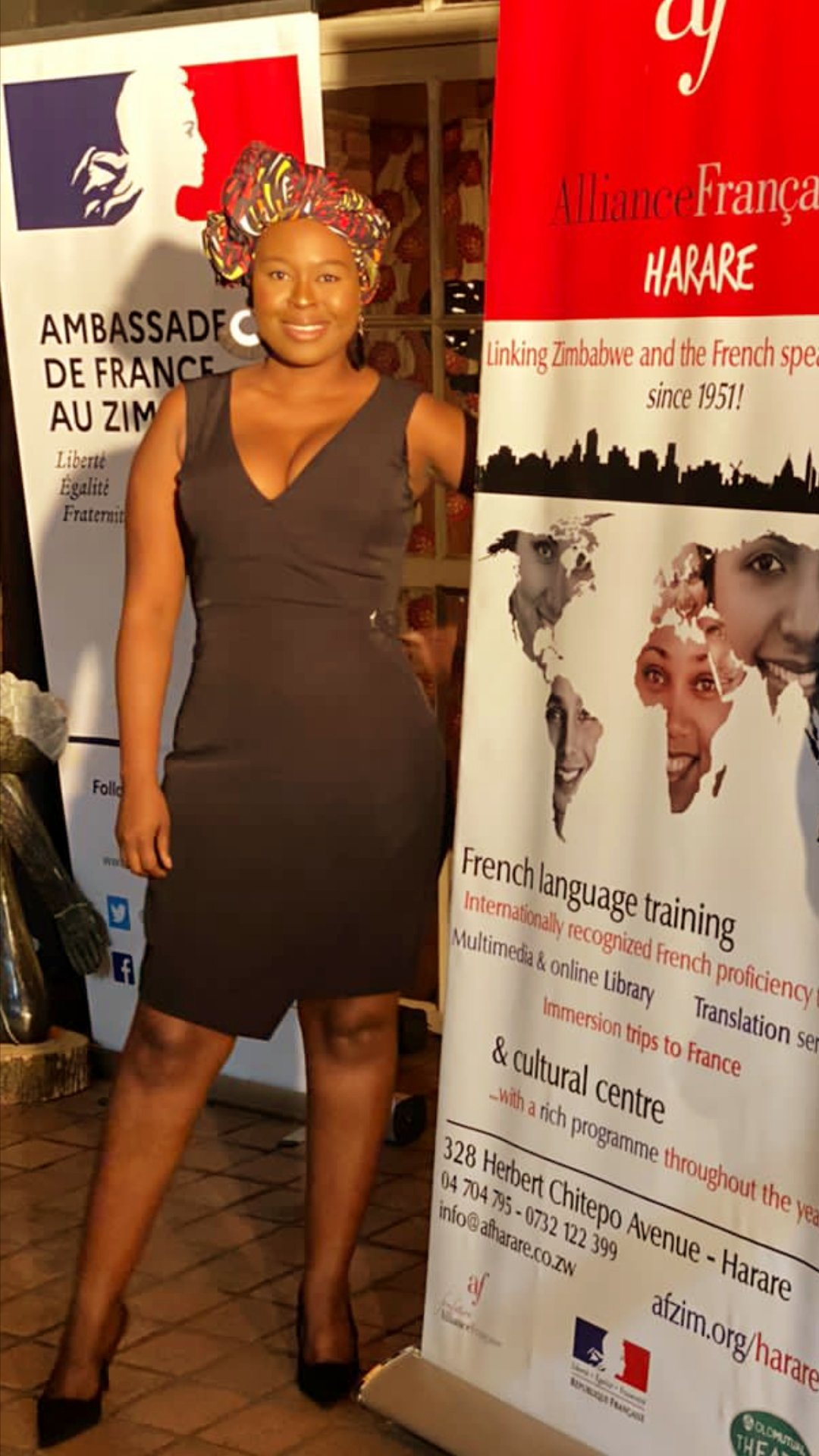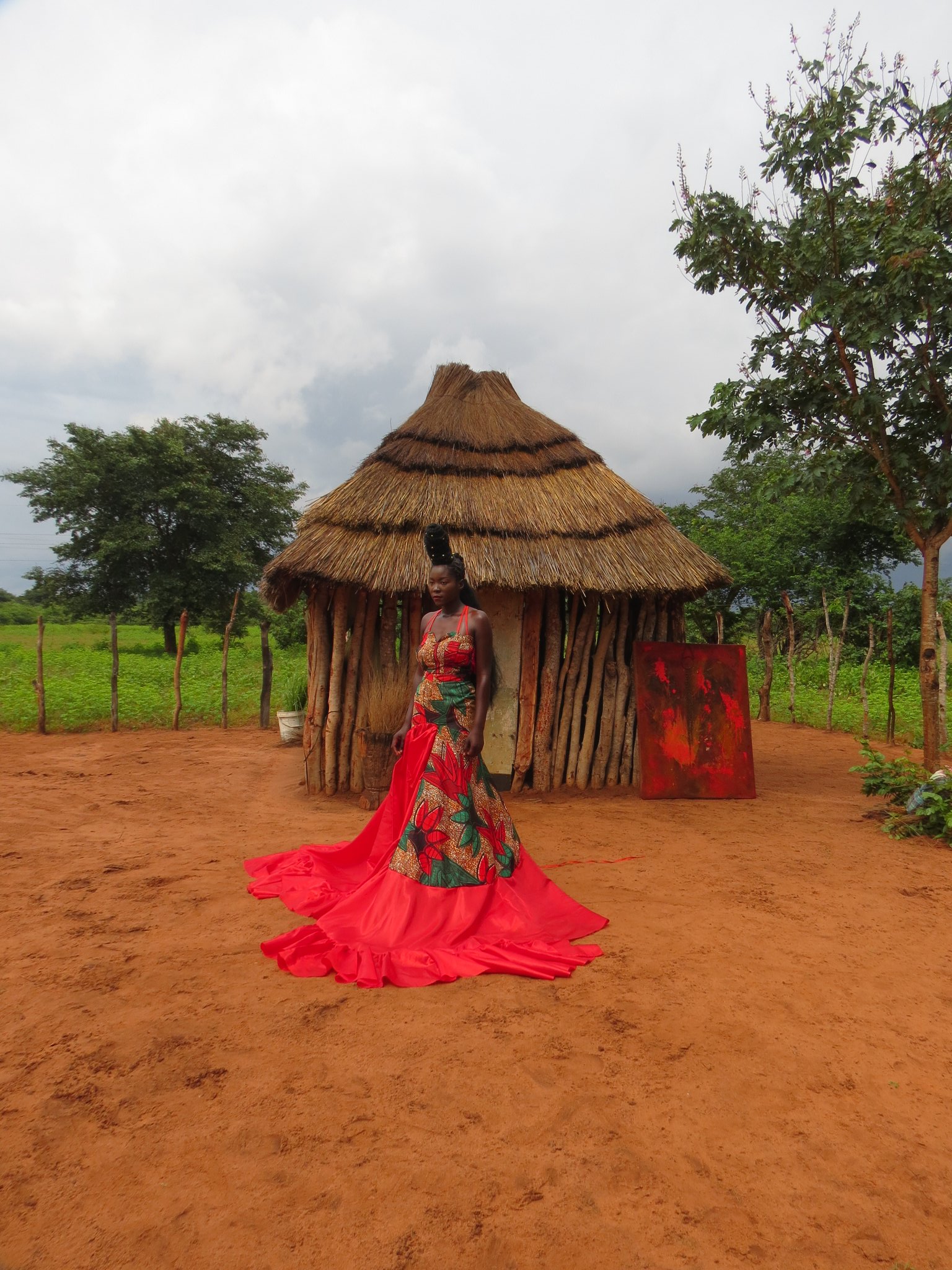BY NOKUTHABA DLAMINI
VicFallsLive caught up with Skhanyisiwe Sebata, popularly known as Ska, a multi-talented creative artist based in the rural outskirts of Victoria Falls under Chief Mvuthu
Ska from Jabulani Village is part of a new generation of creative, social and impact entrepreneurs and is passionate about social justice and sustainability.
She is a contemporary human rights advocate, working on cross-cutting human rights issues through multiple artistic dimensions and has recently released a film called HER which speaks to her daily advocacy.
VicFallsLive lined up a set of questions, and below are the extracts of the outcome.

(N. D) How can you describe your type of art?
(SKA) As a multi creative, I use multiple art forms that include fashion, poetry, visual art and film. I fuse all these art forms to create different narratives and stories.
(N. D) When would you say marked the beginning of your arts career?
(SKA) I have always been artistic from a tender age. I would actually say it is innate. I’m a creative explorer so I like to experiment a lot.
(N. D) Can you tell us about your recent achievements.
(SKA) Since the beginning of my career I have received several awards for fashion and art. These include The Heritage style award,The Diamond Scissors award. I am a two time winner of the PPC Imaginarium awards, in 2018 as a runner up and in 2019 as the overall winner in fashion. I have also received the Ignite Youth award For Creativity from Ignite Youth Organisation.
My film HER – A Disintegrated Notion which is produced by Magamba and supported by Accountability Lab has been showcased on multiple platforms such as the European Union’s He For She Campaign, United Nations Population Fund Education Plus Initiative For World Aids Day and various platforms in Zimbabwe through Accountability Lab in the US Embassy.
It has also been part of exhibitions at the National Gallery of Zimbabwe and showcased in various festivals locally, at Bokola Film Festival and at the Zimbabwe International Film Festival. It has also made it to screenings in Zambia, Ethiopia where I was nominated to represent Zimbabwe in October at the Africa Fashion Reception at the African Union, India, Netherlands as well as in New Zealand.

The film has also been nominated at this year’s Bulawayo Art awards in the Outstanding Short Film category. Another film I did called One In Three supported by One Billion Rising was selected for screening at the just ended International Images Film Festival for Women, a festival run by Tsitsi Dangarembwa.
(N. D) What targets have you set for yourself in this competition?
(SKA) More than just being a household name I want my work to be associated with positive change within rural and marginalized communities. I want to be able to create art that resonates with the everyday lived realities of these communities, especially women and youth.
(N. D) What challenges do you face as an upcoming artist?
(SKA) The issue of adequate resources is a big one for emerging artists. My work requires certain tools of the trade and those are not easy to come by.
It is also difficult to penetrate a male dominated field.
(N. D)What targets have you set for yourself as an artist?
(SKA) I am not yet done exploring the different dimensions of art and I want to see just how far my creativity can go.
I definitely want to take on more International projects and that is what I will be focusing on in the coming year. I’m also planning on setting up a Women’s Gallery in Rural Victoria Falls which focuses on women living in rural areas who are creating from a cultural heritage perspective.
(N. D) Where can people find your work?
(SKA) My work is available online. A simple search of my name Ska Sebata or Sikhanyisiwe Sebata will bring out pages with different links to various works and articles.
My Film is available to watch on YouTube: HER- A Disintegrated Notion by Sikhanyisiwe Sebata.
(N. D) Besides creating, what else do you do to earn a living?
(SKA) I work for an organisation based in rural Victoria Falls called Rise N Shine Trust as the media Manager.
The organisation focuses on creating new Pathways for learning for rural and marginalised young people and women using art in all its forms.
We run girls’ clubs that focus on mainstreaming gender into development and boys clubs that focus on supporting women and girls’ empowerment as well as equal opportunities.
We currently have over 240 members from as young as six years old to 30 years of age from different villages and farming areas in the district of Hwange.
Those who want to be a part of our initiatives can email: risenshinetrust@gmail.com
Ska is also a Trust Young Women Rising alumni, an Accountability Lab Zimbabwe Film Fellowship, a Mandela Washington Fellowship beneficiay and Academy For Women Entrepreneurs as well as an Arts in Medicine fellow for 2022.

 Slider3 years ago
Slider3 years ago
 National4 years ago
National4 years ago
 Opinion3 years ago
Opinion3 years ago
 Tourism and Environment4 years ago
Tourism and Environment4 years ago
 National2 years ago
National2 years ago
 National3 years ago
National3 years ago
 National2 years ago
National2 years ago
 National4 years ago
National4 years ago







